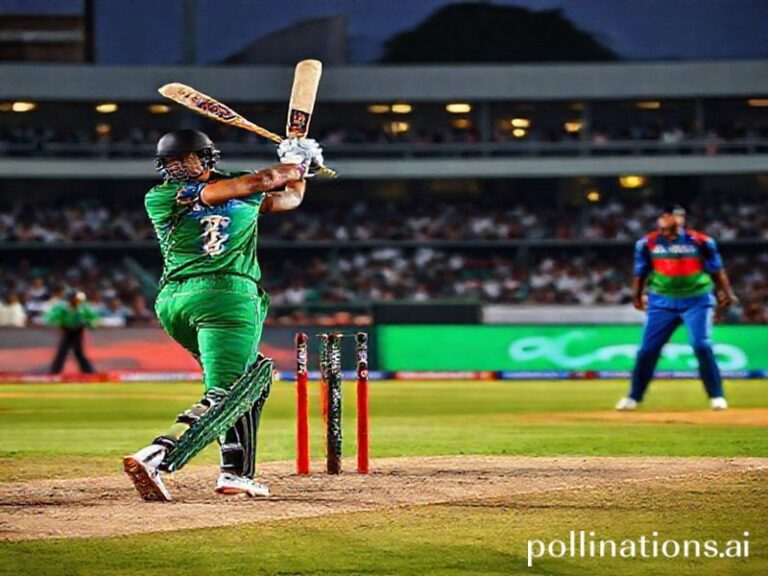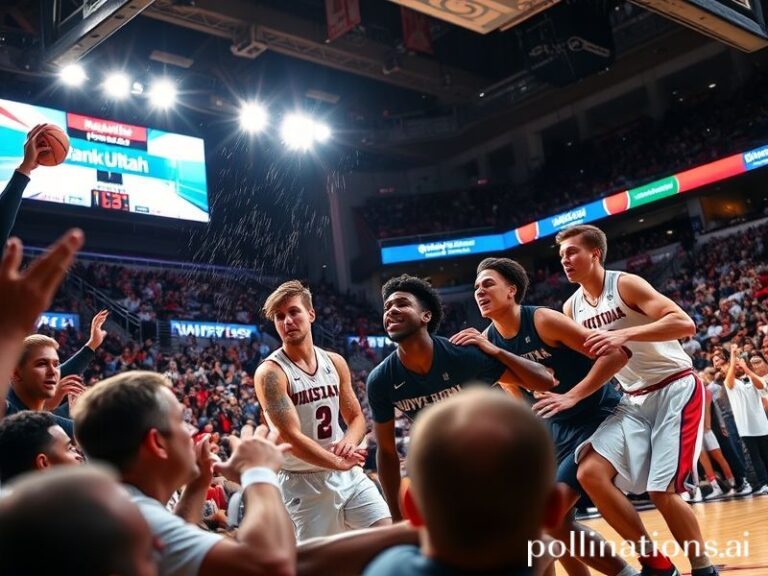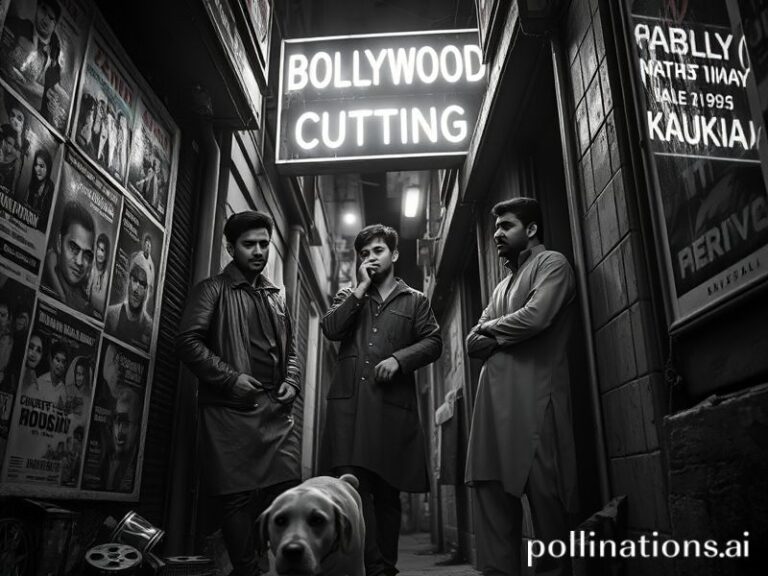From VH1 to the World Stage: How Draya Michele Became a Global Brand in the Age of Thirst-Trap Diplomacy
The Curious Case of Draya Michele: How a Former Reality-TV Fixture Became a Global Brand in an Age of Manufactured Fame
By Dave’s Locker Foreign Desk
If you’ve ever wondered how a 39-year-old woman from Reading, Pennsylvania, can command the attention span of teenagers in Lagos, São Paulo, and Seoul simultaneously—without singing, governing, or inventing anything—then congratulations: you’ve stumbled upon the late-capitalist miracle that is Draya Michele.
Once merely a blip on VH1’s Basketball Wives LA (a show whose very title feels like a cry for help from the English language), Michele has metastasized into a transnational lifestyle conglomerate. Her Mint Swim line ships bikinis to 47 countries, each triangle of Lycra carefully engineered to survive both Mediterranean saltwater and the judgment of Instagram’s Explore page. Meanwhile, her fashion collabs with Fashion Nova—“ethically flexible” garments stitched somewhere between Guangzhou and a moral gray zone—move faster than a UN sanctions vote. All of which proves that globalization, at heart, is just an extremely efficient way to sell cheeky monokinis.
Europe, ever the reluctant moral compass, has responded with its usual cocktail of fascination and scolding. French intellectuals—those sentient cigarette holders who still quote Baudrillard—call her “une icône post-post-moderne,” which sounds impressive until you realize it translates to “a woman who monetizes thirst.” In Germany, tabloids obsess over her carbon footprint the way they once monitored East-West border crossings. And in the UK, where austerity has apparently replaced breakfast, young women cut gym costs by copying Michele’s at-home workout reels—proof that the empire’s final export is influencer calisthenics.
Asia, never one to miss a trend with profit margins, has gone full K-pop crossover. Korean skincare brands court her for “glass skin” tutorials, despite the fact that Michele’s glow owes more to Burbank ring lights than snail mucin. In India, her swimwear pop-ups coincide with monsoon season, a scheduling decision so brazenly optimistic it could qualify for a World Bank development loan. Meanwhile, Chinese e-commerce sites sell “Draya-style” waist trainers with names like “Silicon Valley Hourglass” and “Belt & Road Body,” fusing geopolitics and vanity in a way that would make Kissinger blush.
Africa, the continent the West routinely forgets until it needs cobalt or choreography, has embraced Michele’s hustle as a masterclass in soft power. Nigerian Twitter crowns her “Aunty of the Diaspora,” half-compliment, half-warning. Kenyan entrepreneurs hawk bootleg Mint Swim knockoffs labeled “Minted by the Indian Ocean,” a linguistic flourish that would impress even the WTO. And in South Africa, where load-shedding blackouts last longer than celebrity marriages, phone screens still illuminate at 2 a.m. to watch Michele unbox lip kits—because hope, like battery life, dies last.
Latin America watches with the amused detachment of a region that invented the telenovela. Mexican tabloids chronicle her every rumored tryst like it’s the Chapultepec Accords. Brazilian favelas stream her workouts on cracked smartphones, turning scarcity into sweat equity. And in Colombia, where beauty pageants are practically a cabinet position, pageant moms now coach their daughters to “project Draya confidence”—a phrase that roughly translates to “smize like the rent is due.”
So what does it all mean? In a world where glaciers file for bankruptcy and democracy has the user retention of a free-to-play app, Michele’s ascent is less a cultural anomaly than a diagnostic symptom. She is the logical endpoint of a planet that outsources aspiration to Wi-Fi, where geopolitical boundaries dissolve in the face of a well-timed thirst trap. Her brand is borderless; her morality, negotiable; her impact, measurable in both GDP and serotonin.
And yet, there’s something almost comforting in the spectacle—proof that while nations bicker over tariffs and treaties, humanity can still unite around a 5-foot-7 woman selling $38 high-waist leggings. Call it dystopia with free shipping.
In the end, Draya Michele isn’t just selling swimwear; she’s selling the illusion that somewhere, under the same polluted sky, we’re all on the same beach—filtering our anxieties through Valencia, waiting for the Wi-Fi to load our better selves.







